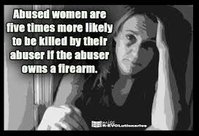
| (BPT) – When someone you love is being emotionally or physically abused by her partner, it can be difficult to know the best way to show support without appearing judgmental or invasive. But statistics show that violence typically continues and escalates if no one takes action to stop it. Here are some simple tips and resources to help you start a conversation that could lead to positive changes. |
| * Say something and lend a listening ear. Make sure that you are in a private location where you won’t be distracted or interrupted. Explain what led to your concerns. Don’t force the issue but allow your friend to confide in you at her own pace. Avoid placing blame on your friend and let her know you want to help. * Understand that things are complicated. You might wonder why your friend still cares for her abuser and finds it hard to leave. Often, abusers show remorse for violence after it happens and promise to change. Your friend may hope that things will improve. Abusive relationships can involve some good times along with the bad, which makes it more difficult to leave. * Offer specific ways to help. Little things can make a big difference. Perhaps you can provide transportation when needed or help with childcare. Volunteer to store copies of important paperwork or even an extra set of clothes at your place in case your friend needs to leave quickly. * Create a safety plan. Together, discuss a place to go in case of emergency and prepare an escape kit which can be easily hidden. This may include a train or bus pass, prepaid cellphone with minutes, gift cards for grocery stores, etc. * Support your friend in the healing process. Your friend has probably been told by her abuser that she’s a bad person in one way or another. Help boost her self-confidence by discussing skills and strengths. To help with physical healing, encourage her to look into free resources like Give Back A Smile (GBAS), a unique program which enables volunteer dentists and laboratory technicians throughout the United States to restore broken and damaged teeth of survivors of intimate partner violence. Established by the American Academy of Cosmetic Dentistry in 1999, the Give Back a Smile program celebrates its 15th anniversary of restoring smiles for domestic abuse survivors throughout the nation. In recognition of abuse victims and to spread the word about this program to prospective patients, the AACD Charitable Foundation has commissioned a love story about new beginnings written by popular Harlequin romance author Isabel Sharpe. The e-novella entitled “For One of Your Smiles” tells the story of a young woman who escapes her abuser and learns to overcome insecurities and fear to love again. Details about the Give Back a Smile program are featured at the end of the book, providing an easy way to share program information with a friend in need. This e-book is available for 99 cents downloadable via Amazon Kindle and at www.AACD.com. Book proceeds go to the American Academy of Cosmetic Dentistry Charitable Foundation’s Give Back a Smile program. * Guide your friend to community resources. Gather information on local women’s and family shelters and domestic violence hotlines. If your friend asks for advice on what she should do, let her know that she’s not alone and that there are people available to help. Encourage her to seek the confidential assistance of dating/domestic violence victim advocates. There are no simple or quick solutions for helping a loved one who is involved in an abusive relationship. But offering meaningful support whether by listening, sharing resources, or opening your home as a safe haven, may provide the encouragement she needs to escape a violent situation and start a new chapter in her life. |











